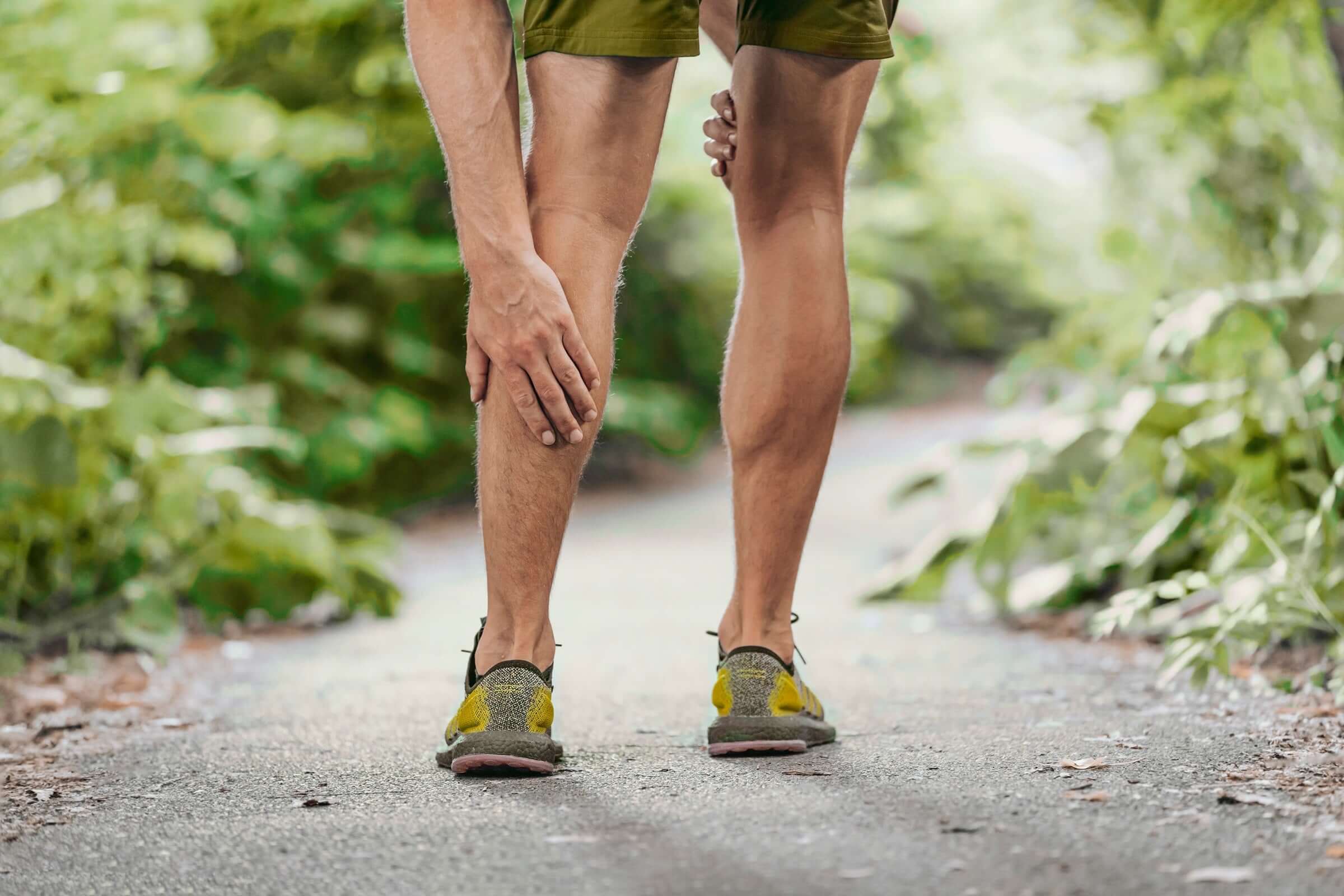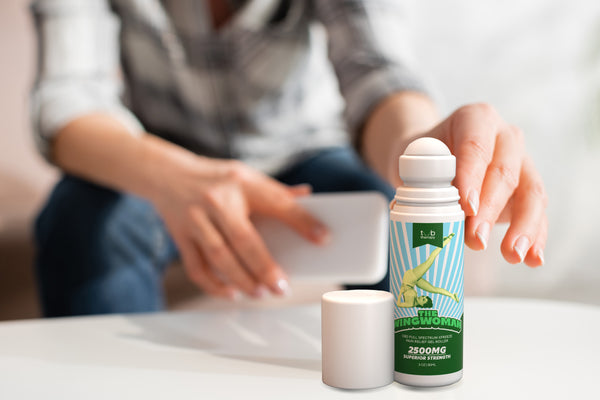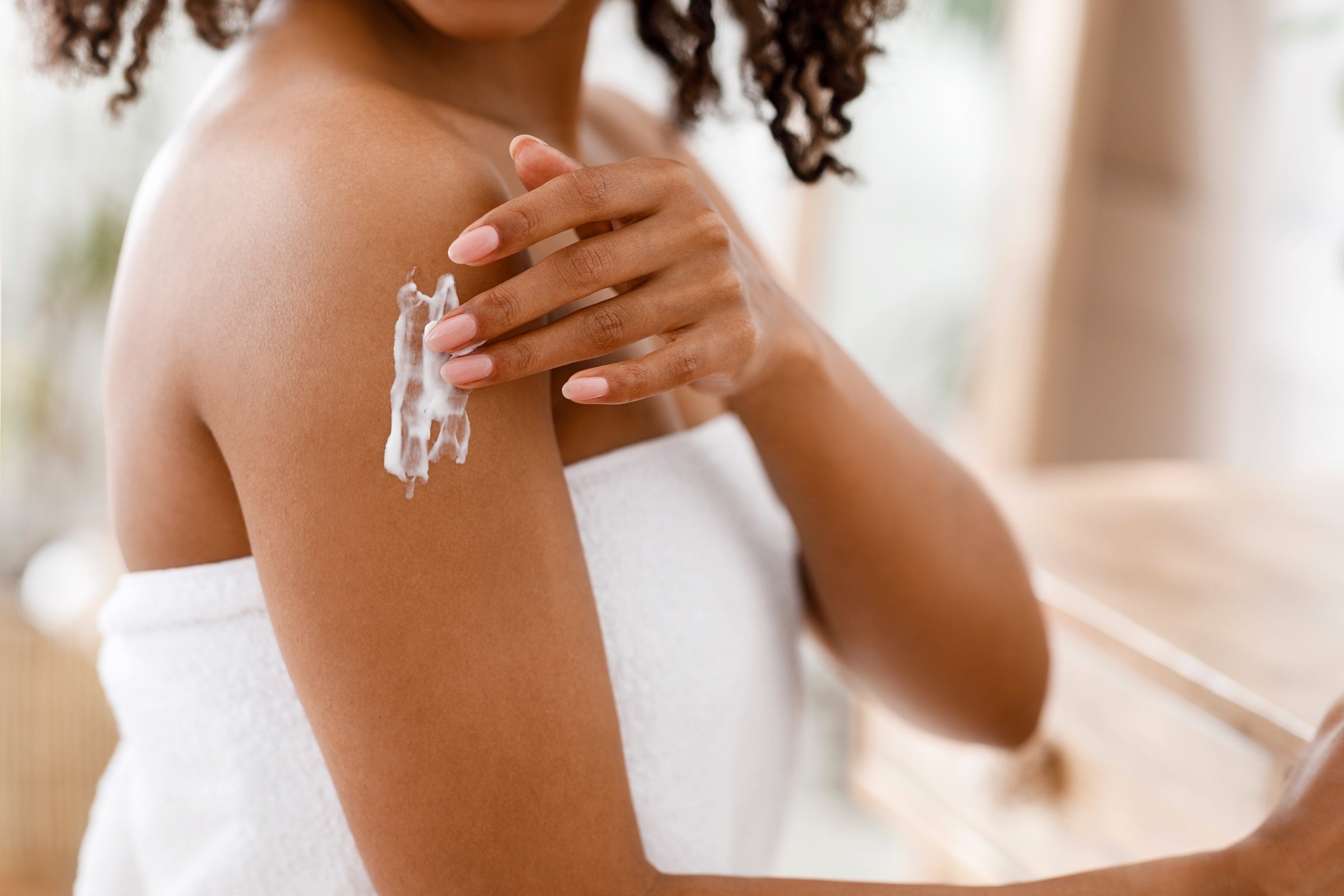How to ease sore muscles after running

Did you lace up for a leisurely run only to limp back with a calf crying for mercy? Or perhaps you breezed through your run but found yourself wincing during post-run chores. Running is one of the most accessible and effective forms of exercise, but for many, it comes with a common complaint: muscle soreness. Whether you're a seasoned marathoner or a newbie to the pavement, the post-run muscle symphony can leave you feeling like a well-aged cheese – intense and just a tad bit frustrated.
But hey, the adventure doesn't have to end there! We've got a few tricks up our sleeve to tackle post-run pains, from trusty CBD topicals to chilling ice baths. So stick around, because this article's loaded with all the simple tips you need.
Why do I feel pain after running?
Feeling pain after running could be a sign of various issues, ranging from minor concerns like improper footwear, poor running form, or muscle fatigue to more serious issues like overuse injuries or underlying medical conditions. Essentially, running pain can be categorized into four types: joint, tendon, bone pain, and muscle.
Joint pain is often localized, but it can sometimes be mistaken for tendon injuries. Tendon pain, like a sprained Achilles tendon, can worsen if ignored, potentially leading to a rupture and requiring prolonged rehabilitation.
Bone pain may signal a fracture and can prompt you to stop running and seek medical imaging. Muscle pain ranks among the most prevalent discomforts experienced by runners and varies from soreness to tears. Let’s zero in on muscle pain and dish out some preventative moves to keep out those muscle melodramas after running.
What causes muscle pain after running?
If you're new to running or have pushed yourself too hard—either by increasing mileage too quickly or ramping up intensity—your muscles might not be adequately conditioned to handle the stress.
Then there's delayed onset muscle soreness (DOMS), which stems from microscopic damage to muscle fibers during exercise. When you run, particularly if you're overexerting or exploring new terrain, your muscles undergo stress and strain they're not accustomed to. This stress results in small tears in the muscle fibers, prompting an inflammatory response from the body as it strives to repair the damage. It's this inflammation and subsequent repair process that cause the post-run muscle soreness you feel.
Is It okay to run every day, even with sore muscles?
Running every day might seem like the ultimate challenge, especially for those chasing fitness dreams or gearing up for a big event. But hey, even superheroes need a day off! Tuning into your body's signals and granting it the well-deserved R&R it craves is the real secret to success.
Running on sore muscles increases the risk of overuse injuries and can lead to chronic issues down the line. Instead of running every day, consider incorporating rest days into your routine to allow your muscles time to repair and rebuild. Cross-training activities like swimming, cycling, or yoga can also help maintain fitness levels while giving your muscles a break from the impact of running.
Tips to help alleviate sore muscles after running
Proper Warm-Up and Cool Down
Before hitting the pavement, warm up your muscles with dynamic stretches and light cardio to prepare them for the activity ahead. After your run, take the time to cool down with static stretches to help prevent stiffness and improve flexibility.
Hydration and Nutrition
Stay hydrated before, during, and after your run to support muscle function and aid in recovery. Consuming a balanced post-run snack or meal rich in protein and carbohydrates can also help replenish glycogen stores and promote muscle repair.
Foam Rolling
Foam rolling, a self-myofascial release technique, effectively eases post-run muscle pain by breaking up knots and adhesions, increasing blood flow, and enhancing flexibility and range of motion. It also reduces inflammation and promotes relaxation in the muscles and nervous system. Integrating foam rolling into your routine supports muscle health, accelerates recovery, and boosts athletic performance.
Massage
Massages promote increased blood flow to the muscles, which helps deliver oxygen and nutrients while removing metabolic waste products that contribute to soreness. Additionally, massages help release muscle tension and knots, reducing stiffness and improving flexibility. The pressure applied during a massage also stimulates the nervous system, triggering the release of endorphins, which are natural pain relievers, and promoting relaxation. Moreover, massages can target specific areas of soreness or tightness, providing localized relief.
Ice Baths or Cold Therapy
When you immerse yourself in cold water or apply ice to your muscles, it causes vasoconstriction, which reduces blood flow to the area. This helps limit inflammation and swelling, which are common causes of soreness. Additionally, cold therapy numbs the nerve endings in the muscles, providing temporary pain relief. The cold temperature also decreases metabolic activity in the muscles, slowing down the production of inflammatory substances and reducing tissue damage. Overall, ice baths or cold therapy can help speed up the recovery process, reduce muscle soreness, and promote quicker return to training.
CBD Topicals
CBD topicals provide localized relief by targeting specific areas of discomfort, making them a popular choice for alleviating muscle soreness, joint pain, and other forms of localized pain. Cannabidiol (CBD) has gained popularity for its potential anti-inflammatory and pain-relieving properties, making it a promising option for post-run recovery.
When applied directly to the skin, CBD topicals penetrate the skin's outer layers and interact with cannabinoid receptors in the peripheral nervous system and immune cells. This interaction can help modulate pain signals and reduce inflammation in the affected area. Additionally, CBD topicals may also interact with other receptors, such as TRPV1 receptors, which are involved in regulating pain perception and inflammation. Many athletes share anecdotes attesting to the efficacy of CBD topicals in offering a more natural alternative for pain management, avoiding the need for traditional pills.

Gear up with Tub Therapy's The Wingwoman CBD XFreeze Pain Relief Gel Roller which combines the benefits of CBD with cooling menthol to soothe sore muscles and joints, providing targeted relief exactly where you need it.
Epsom Salt Bath
Soak in a warm bath with Epsom salts to soothe sore muscles and enhance circulation. The magnesium content in Epsom salts is known to assist in muscle recovery. For an even more luxurious experience, consider soaking in a CBD bath bomb that contains Epsom salt.
CBD oil not only nourishes your skin but also holds the promise of promoting relaxation and muscle relief, creating a powerhouse duo when combined with the soothing effects of Epsom salt.
Our verdict?
Muscle soreness post-run is par for the course, but it doesn't have to throw a wrench in your training or fitness goals. By mastering effective recovery methods and integrating CBD topicals into your regimen, you can dial down the discomfort and bid farewell to hobbling back with calves begging for mercy. Don't forget to give yourself ample rest, stay hydrated, and tune in to your body's signals for a running routine that's both safe and sustainable.



